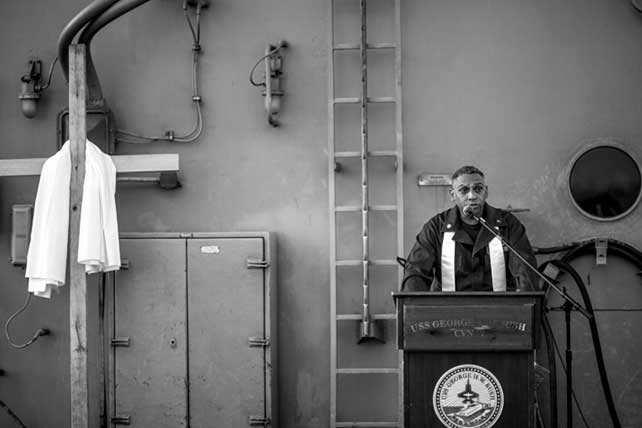“I had soldiers who were practitioners of Wiccan faith, and my job is not to say to them, ‘Hey, wouldn’t you like to love Jesus?’” she said, recalling how she assisted a Wiccan Army member serving in Korea. “My job was to help that young soldier find where his particular group of folks met and where he could practice his faith.”

Chaplain Karen Diefendorf with another priest during a visit to a civic action team doing construction on the Micronesian island of Kosrae. Photo courtesy Diefendorf
Also during her service in Korea in the late 1990s and early 2000s, Diefendorf said she provided cassette tapes of sermons to soldiers and entrusted one with Communion elements because she knew she wouldn’t be able to reach their location often.
“So far, the courts have upheld that you certainly have two competing clauses within the First Amendment, establishment and free exercise,” she said. “And at this point, certainly chaplains have to walk that fine line not to create establishment in the midst of trying to also enable people to practice their beliefs.”
Schaick recalled being deployed overseas in the Air Force when a new rabbi joined his staff. On arrival, the rabbi described himself as “first and foremost a chaplain and secondarily a rabbi” — an order of priorities that Schaick said applies to chaplains to this day, regardless of their faith perspective.
“The longer you serve in the chaplaincy, I think the closer you get to really believing that — and therefore, religious affiliation becomes secondary,” he said. “It’s ‘How’re you doing today?’ and ‘I’d love to hear what’s on your heart’ and ‘How can I be able to help you today?’ Those kind of questions, quite frankly, are impervious to religious distinctions.”
This story has been updated.
This article originally appeared here.

